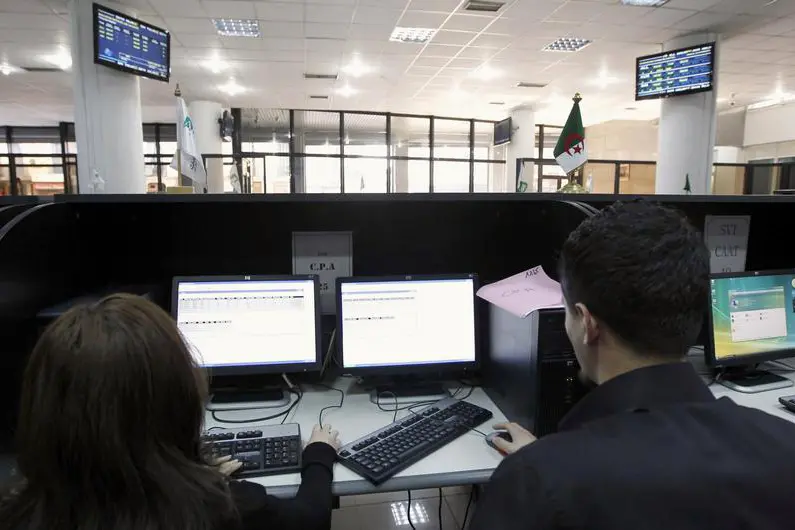PHOTO
ALGIERS: Algeria's lower house of parliament on Sunday approved increases in subsidised gasoline and diesel prices for the third straight year as part of the 2018 budget, amid government attempts to compensate for a sharp fall in oil and gas revenues.
The budget also includes higher and new taxes on some imported and local products in a bid to diversify funding away from oil and gas exports.
The budget calls for a 25 percent rise in spending to 8.628 billion Algerian dinars after two years of cuts. In order to cover the extra expenditure the government has amended a law to allow the central bank to lend directly to the public treasury.
The budget is widely expected to win approval from the Senate, where the government also has a majority.
Oil and gas revenues account for 95 percent of the OPEC member's exports and 60 percent of the state budget.
State finances have been hit since crude oil prices first fell in mid-2014, forcing the government to cut spending on some subsidised goods and seek and new financing alternatives.
"Your support will help us cope with the current financial problems," Finance Minister Abderrahmane Raouia told parliament.
Algeria has announced plans to reform its susidy system, which covers almost everything from basic foodstuffs and drugs to energy.
Under the new increases, the price for premium gasoline, unleaded gasoline and regular gasoline will go up by 16.65 percent, 16.84 percent and 18.20 percent per litre respectively, while diesel will rise by 11.65 percent next year.
Domestic fuel prices are very low by international standards. Unleaded gasoline costs 35.33 dinars (31 U.S. cents)per litre.
Taxes will rise by 10 percent on tobacco and 25 percent on instant coffee, LED torches, almonds and dried fruits.
The budget also includes plans to launch Islamic financial services in an attempt to attract money from the informal market and religious conservatives who oppose paying interest.
The overwhelming majority of lawmakers approved government policies in the finance bill while rejecting a proposal to impose a wealth tax.
"We want to avoid capital flight from the formal sector to informal one and abroad," said Toufik Torche, head of the finance committee, referring to a provision on wealth tax.
Opposition lawmakers criticised the budget, however, saying it would hit normal Algerians.
"The increase in taxes is an additional burden," said Djamel Messaoudi from the Party for Freedom and Justice. "This will inevitably weaken the purchasing power of citizens."
(Reporting by Hamid Ould Ahmed Editing by Ulf Laessing, Greg Mahlich) ((hamid.ouldahmed@thomsonreuters.com;))
The budget also includes higher and new taxes on some imported and local products in a bid to diversify funding away from oil and gas exports.
The budget calls for a 25 percent rise in spending to 8.628 billion Algerian dinars after two years of cuts. In order to cover the extra expenditure the government has amended a law to allow the central bank to lend directly to the public treasury.
The budget is widely expected to win approval from the Senate, where the government also has a majority.
Oil and gas revenues account for 95 percent of the OPEC member's exports and 60 percent of the state budget.
State finances have been hit since crude oil prices first fell in mid-2014, forcing the government to cut spending on some subsidised goods and seek and new financing alternatives.
"Your support will help us cope with the current financial problems," Finance Minister Abderrahmane Raouia told parliament.
Algeria has announced plans to reform its susidy system, which covers almost everything from basic foodstuffs and drugs to energy.
Under the new increases, the price for premium gasoline, unleaded gasoline and regular gasoline will go up by 16.65 percent, 16.84 percent and 18.20 percent per litre respectively, while diesel will rise by 11.65 percent next year.
Domestic fuel prices are very low by international standards. Unleaded gasoline costs 35.33 dinars (31 U.S. cents)per litre.
Taxes will rise by 10 percent on tobacco and 25 percent on instant coffee, LED torches, almonds and dried fruits.
The budget also includes plans to launch Islamic financial services in an attempt to attract money from the informal market and religious conservatives who oppose paying interest.
The overwhelming majority of lawmakers approved government policies in the finance bill while rejecting a proposal to impose a wealth tax.
"We want to avoid capital flight from the formal sector to informal one and abroad," said Toufik Torche, head of the finance committee, referring to a provision on wealth tax.
Opposition lawmakers criticised the budget, however, saying it would hit normal Algerians.
"The increase in taxes is an additional burden," said Djamel Messaoudi from the Party for Freedom and Justice. "This will inevitably weaken the purchasing power of citizens."
(Reporting by Hamid Ould Ahmed Editing by Ulf Laessing, Greg Mahlich) ((hamid.ouldahmed@thomsonreuters.com;))





















